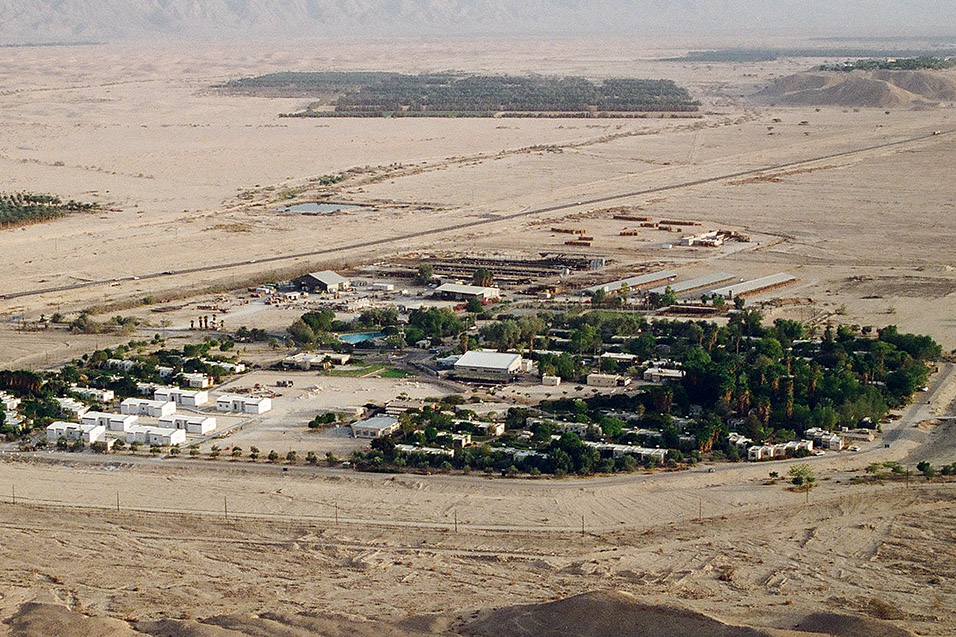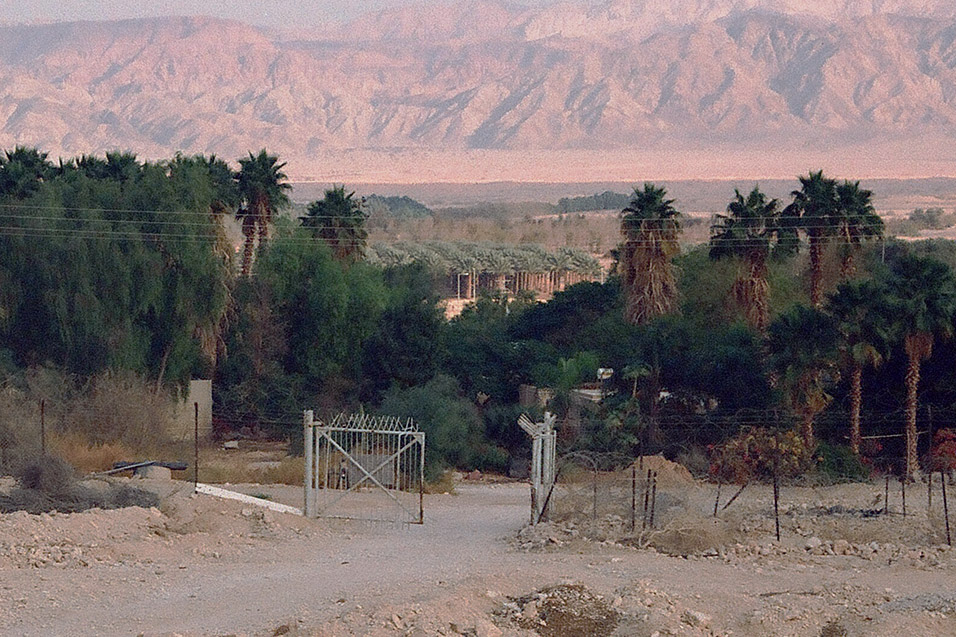It was a steaming hot day in late July. I had been sitting on an Egged bus10 for what seemed like an eternity, watching the endless desert expanse fly by. My patience suddenly switched to excitement as the bus suddenly pulled off to the side of the road. The driver turned around and gave me a signal. This was my stop, Kibbutz Arava. I searched the bowels of the bus for my belongs—a 50 pound backpack and a guitar. After finding my stuff, I lay it on the side of the blistering hot asphalt road. An insect stopped buzzing in the near distance, startled by my movements. A nervous flash quickly hit me and then vanished as the double decker bus driver put it in first and drove away leaving me behind in the dust and dirt. I pondered for a minute, and thought to myself. “So this is Kibbutz Arava." My head nodded with disbelief. “This is the place where I would be spending the next part of my life.”
The two lane road that I stood next two divided the valley in half. To my right lay an endless stand of palm trees, offering a pleasant oasis next to the endless expanse of barren desert landscape beyond. To my left, I viewed an encampment caged in by row upon row of barbed wire fences. It was Kibbutz Arava. A blue steel gate marked the entrance to the compound. Israel had not always been peaceful with its neighbors, Egypt and Jordan. At one point, those barbed wires were a crucial barrier of protection from the outside. Peace prevails now, and those barbed wires sit, rusting, an unfriendly reminder of the past decades of struggle. I walked through the gates, unnoticed. I lay on the green grass and contemplated my next move.

